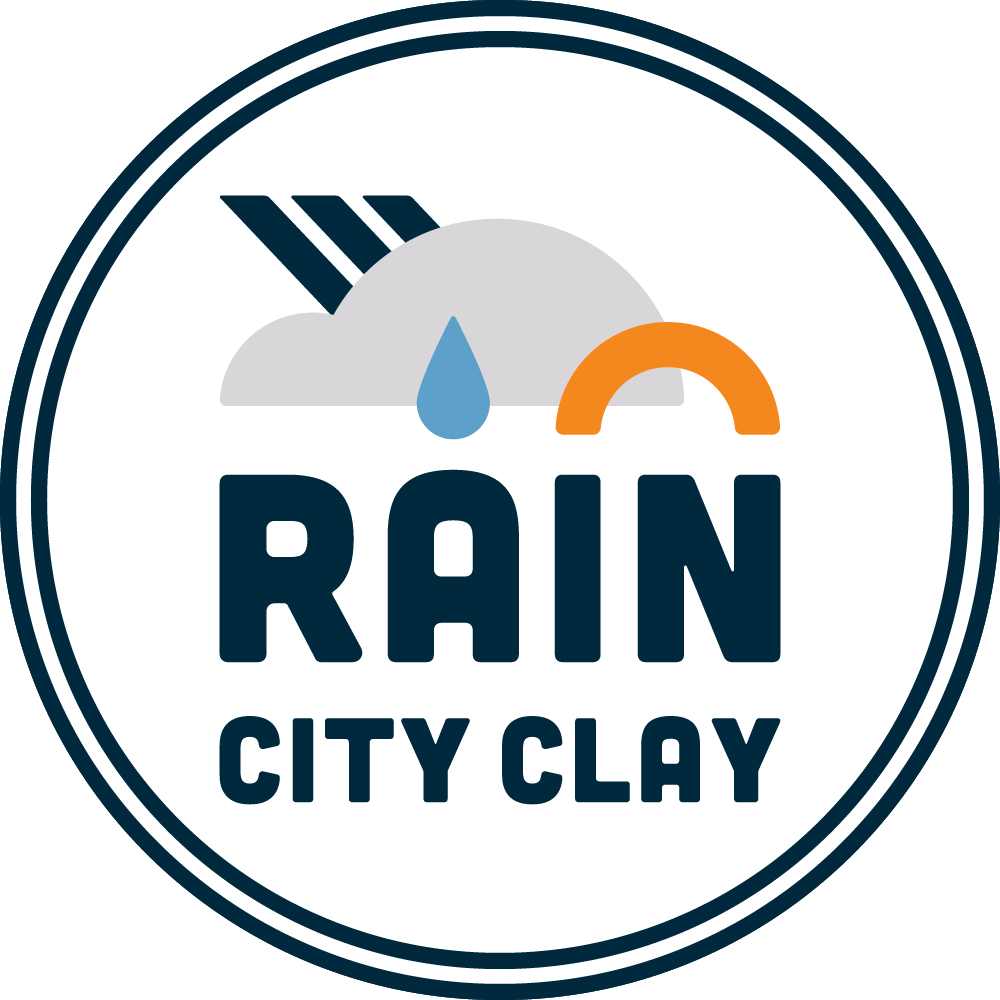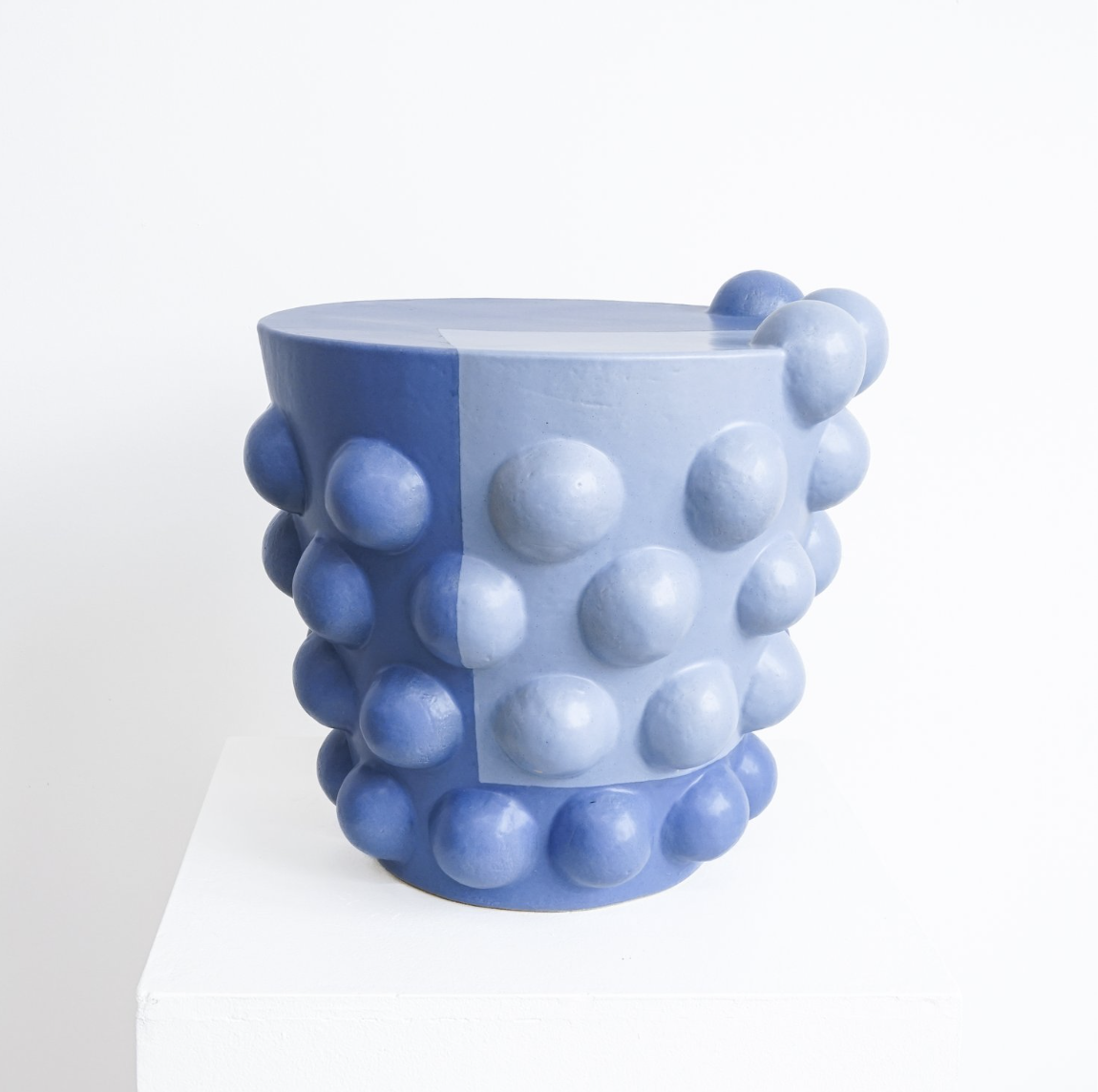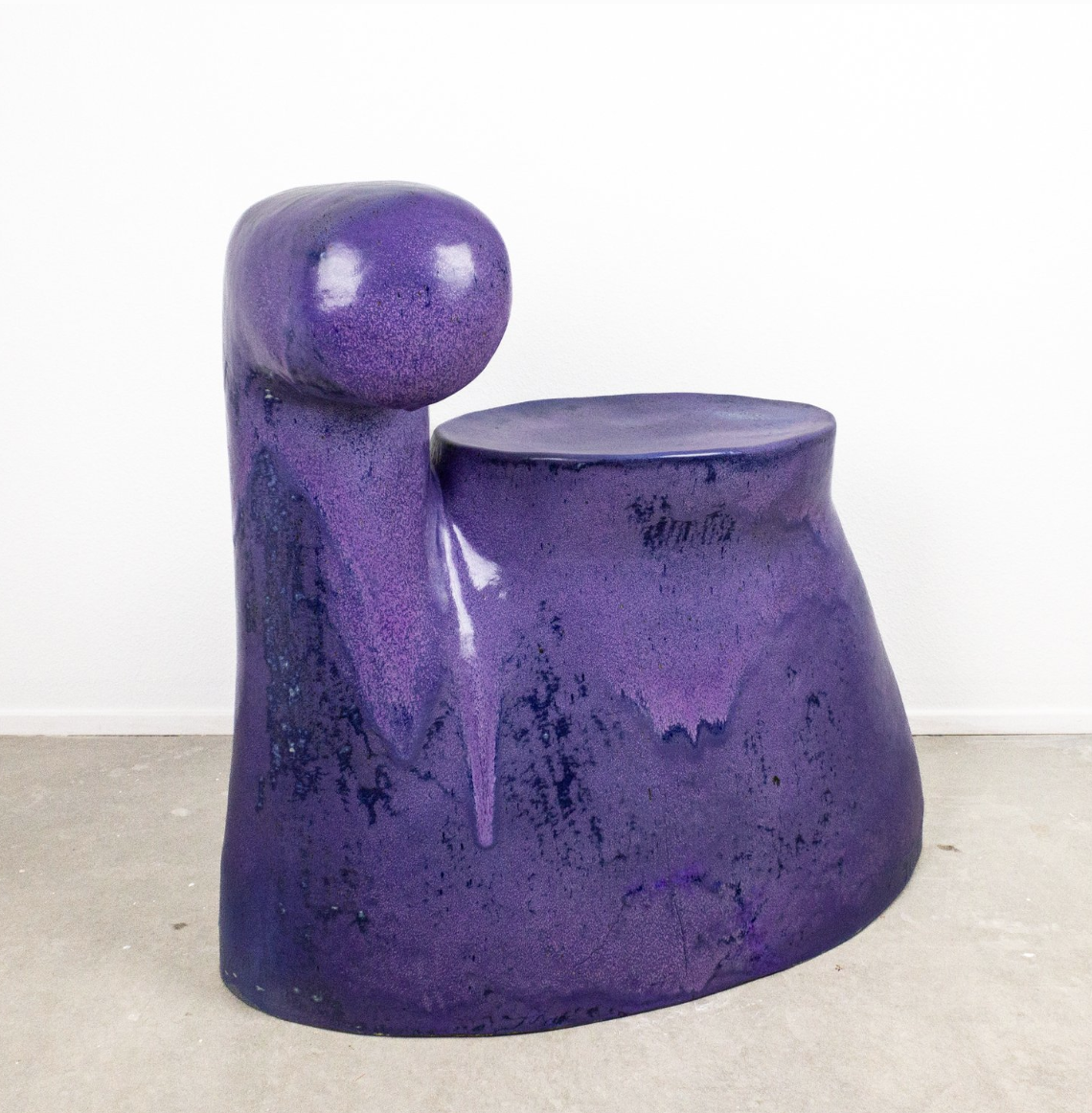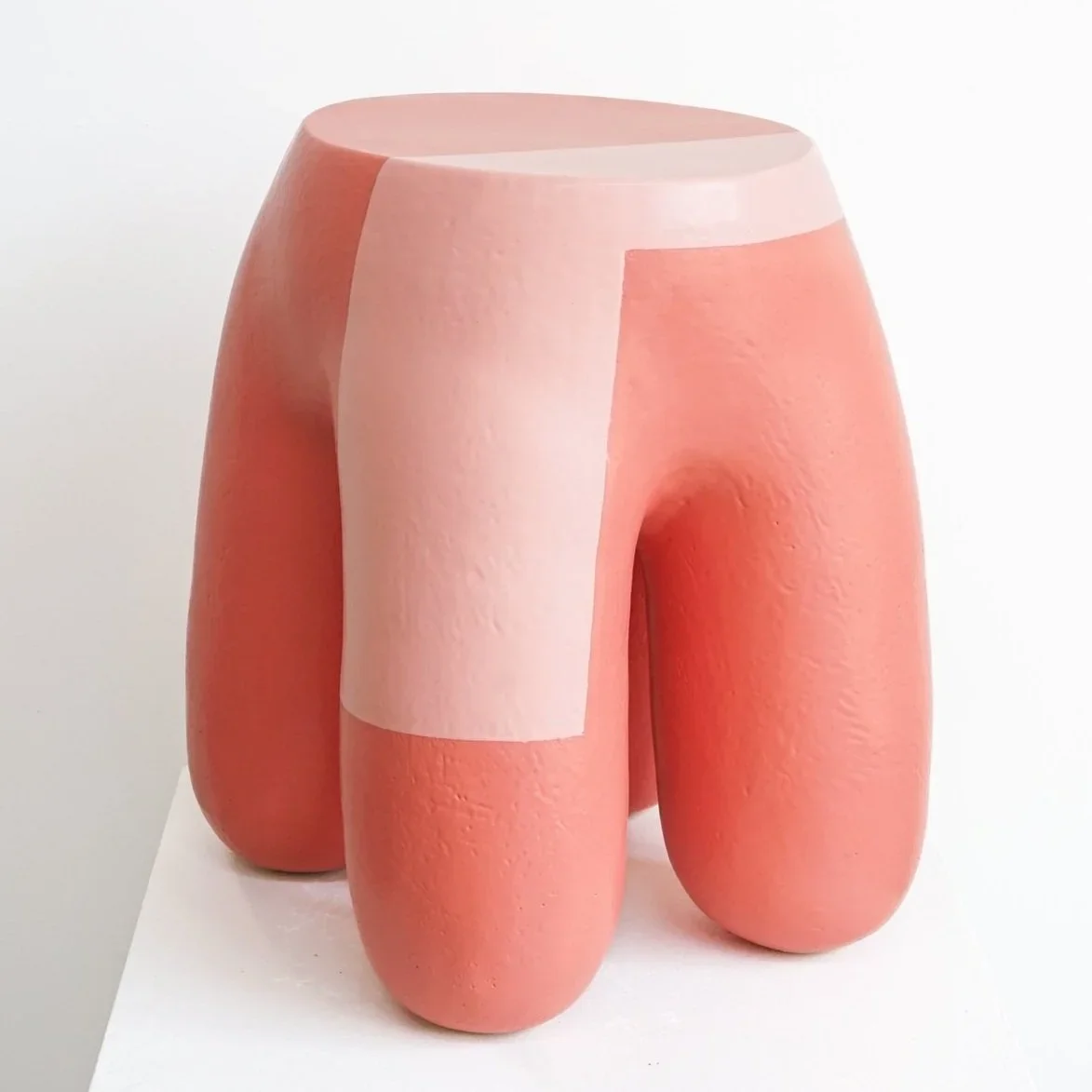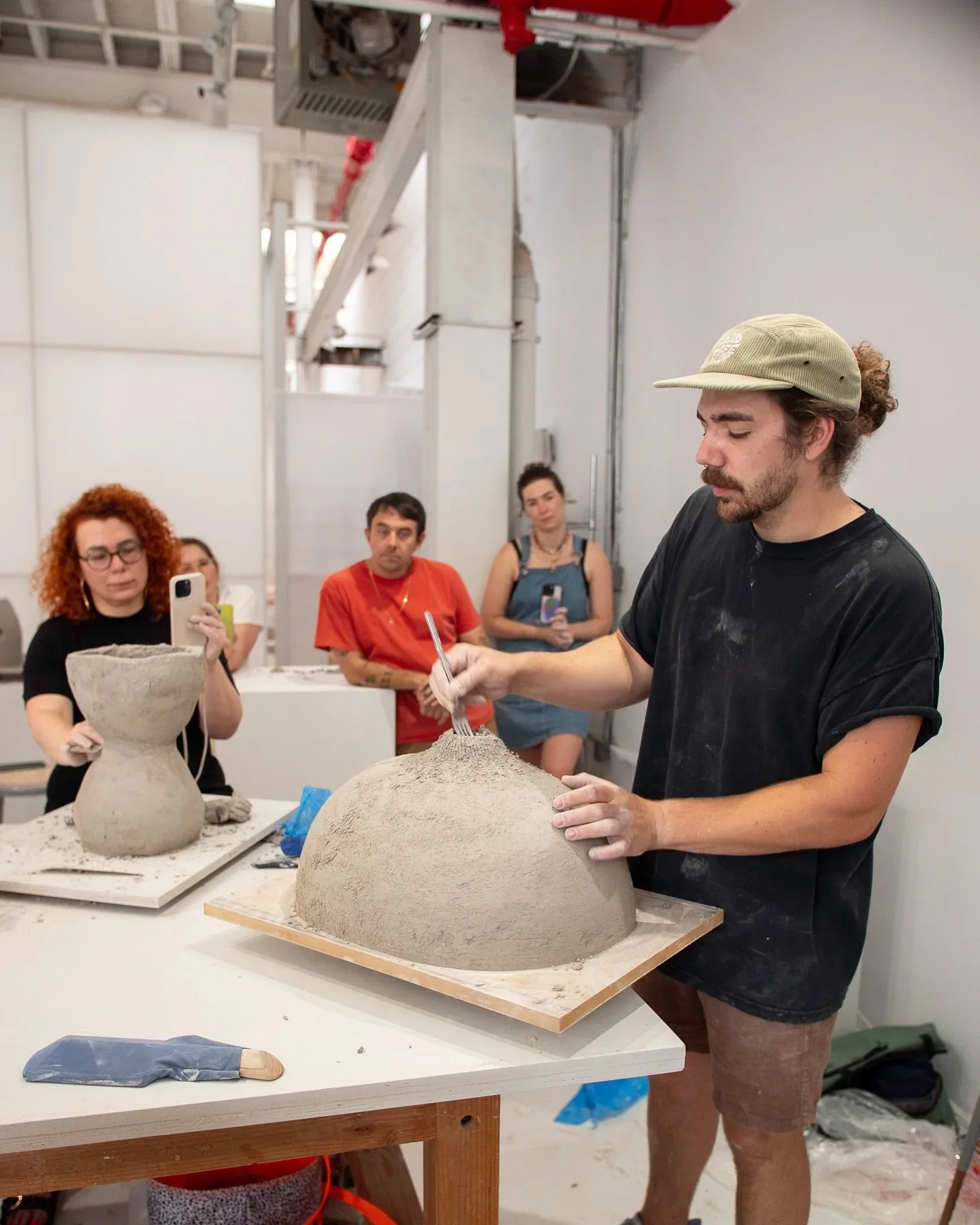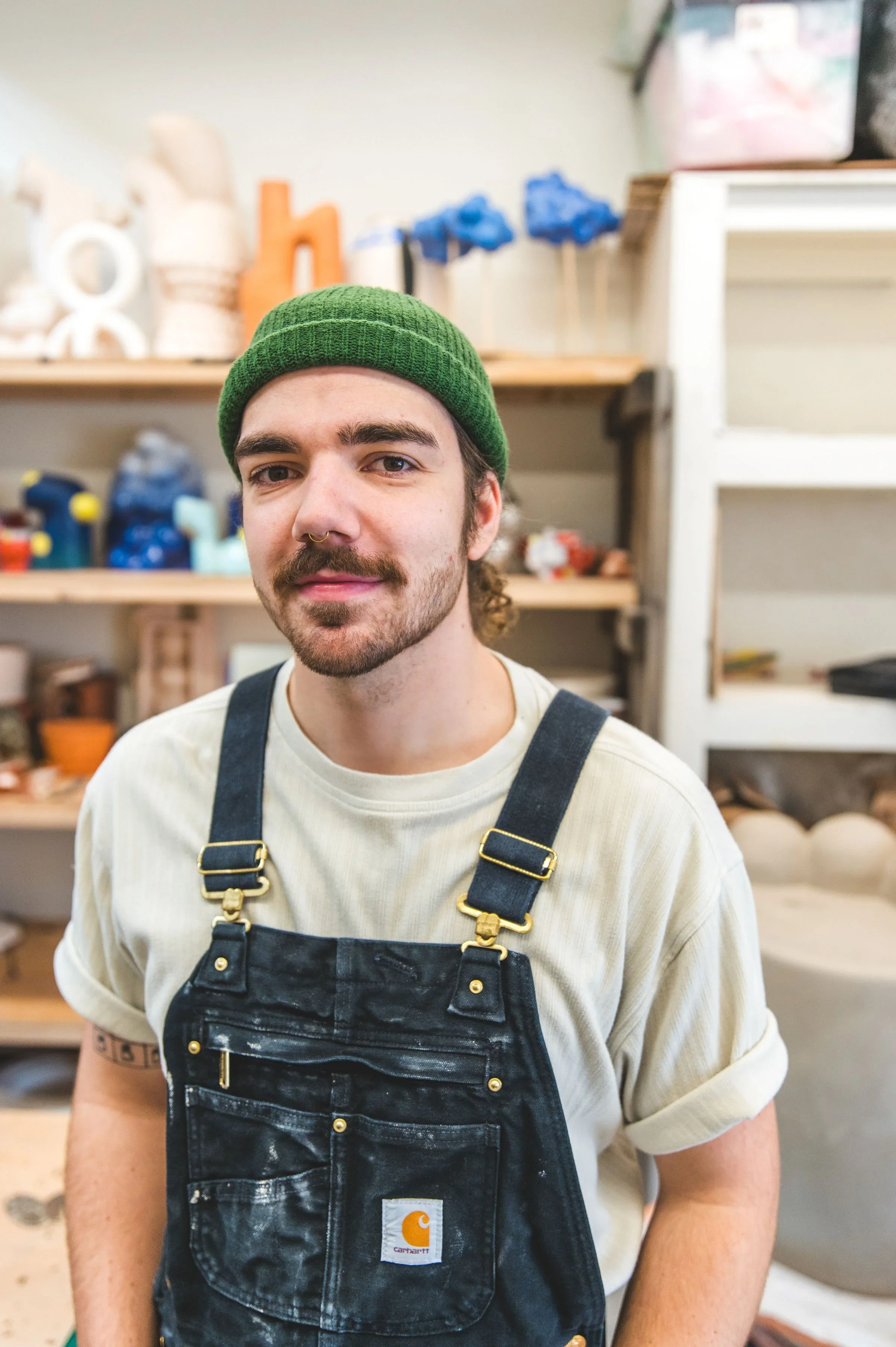RCC Clay classes, workshops, & more!
Read our registration policies, refunds, and other conditions before registering.
Clay classes require some physical strength. Consider a one-time event if you are uncertain of your ability to participate.
Fall Session Dates: Sept 7th-Nov 20th, varies by class
Winter Session Dates: Jan 3rd-March 19th, Registration for Winter will be added to this page on October 7th at 12noon.
Scholarships for session classes
FAQ’s for Classes at RCC (Learn More)
Gift Certificates: Due to a platform update, you may experience issues using your gift certificate.
Please contact us via email if you do.
Join a class with a fabulous instructor or work at your own pace through independent study. Our 10–11 week sessional classes are open to anyone 15 and older, from complete beginners to those looking to expand their clay skills. Each session includes generous practice hours in our studio so you can reinforce what you learn.
Projects are limited to 15” in any direction. We encourage consistent attendance—sessions move quickly, and there are no make-up classes. However, you can always use your practice time to connect with classmates and instructors to build on what you have learned.
All participants use Clay Q&A, our online communication hub for kiln schedules, asking questions, studio events, deadlines, resources, and community Q&A.
Typical 11 Week Session Outline: (this shifts up for a 10-week session)
Week 1 – Meet your group, tour the studio, first demo, begin working with clay
Weeks 2–3 – Ongoing demos, project work, first bisque firing
Week 4 – Glazing demo
Week 5 – Glazing in class, continue projects, first glaze firing
Weeks 6–7 – Build skills and create projects
Week 8-9 – Last week for wet clay, final bisque
Week 10 – Last week for glazing, final glaze firing
Week 11 – Wrap-up: potluck, review finished work, photos, sanding bottoms
Is the class you want FULL? Add your name to the waitlist HERE
Use the drop down boxes below to narrow in on a class that works for you!
Search by Length of Class
Search by Day or Topic
- 11-Weeks
- Add-On Participant
- Age 21+
- All Levels
- Basics & Beyond
- Fridays
- Glaze
- Handbuilding
- Independent Study
- Intro to Clay
- Intro to Wheel
- Jewelry
- Membership
- Mondays
- MultiDay
- Professional Development
- Saturdays
- Sculpting
- Self-Directed
- Soda Firing
- Special Topic
- Sundays
- Surface
- Texture
- Thursdays
- Tuesdays
- Wednesdays
- Wheel & Hand Blend
- Wheel Throwing
- Wheelthrowing
- Youth
December Workshop: Ceramic Furniture
December Workshop: Ceramic Furniture
Instructor: Austin Coudriet
Dates: December 12th, 13th, and 14th
Three full days of working with clay. 10:000am-5:00pm
Limited to 12 participants
1 Hour Lunches - please pack a lunch
(consider a cooler bag, as our small staff fridge cannot fit everyone’s lunches).
Workshop Fee: $775
Includes 100# of clay and instruction.
Does not include firing of artwork.
Refund Policy: Please read this before registering.
Furniture Building with Clay!
Workshop Description:
Join us for an immersive three-day workshop where participants will create their very own piece of ceramic furniture—choose from a chair, stool, or side table. Under the guidance of Austin, you will explore advanced coil and slab-building techniques, focusing on moisture control and effective attachment methods. Learn when and how to incorporate internal supports to ensure optimal weight distribution for your design.
Throughout the masterclass, you will gain practical experience in enclosing forms, constructing shrink slabs, and managing the drying process for each piece. Austin will provide expert insights on how to safely move and fire your finished works, as well as various techniques for repairing surface cracks at different stages of fabrication.
This course is tailored for intermediate to advanced makers looking to deepen their skills and expand their creative repertoire. Beginners are encouraged to seek prior experience before enrolling.
Day 1: Introduction to Design & Construction
Morning Session: Introduction and Design
Welcome and Presentation
Austin introduces the workshop and shares insights on ceramic furniture design.
Understanding Material Properties
Presentation on slab shrinkage and interior structure considerations for furniture.
Design Exploration
Students sketch 3 to 4 design ideas. Austin provides feedback on which designs may work best for first-time furniture makers.
Afternoon Session: Maquettes and Initial Construction
Creating Miniatures
Students spend time sculpting 2 or 3 maquettes based on their design sketches.
Austin discusses the learning process and the balance between the final piece and the maquette.
Beginning the Furniture Piece
Students start their main projects by creating base slabs and engaging in coil building.
Austin demonstrates proper building techniques, focusing on:
Rolling and compressing slabs to prevent warping, sinking, and cracking.
Crafting and attaching coils for maximum strength and efficiency.
Day 2: Furniture Fabrication
All-Day: Building and Support Structures
Main Furniture Construction
This day is dedicated to the fabrication of the furniture pieces.
Austin guides students on adding internal supports, ensuring that all pieces have proper structural integrity.
Techniques for Enclosing Furniture
Instruction on how to effectively enclose furniture designs, including flipping tables if necessary.
Students are encouraged to refine their maquettes if they wish to keep them as part of the learning experience.
Day 3: Surface Refinement and Finishing
Morning Session: Surface and Completion Techniques
Refining the Furniture
Austin discusses techniques for refining furniture pieces, including closing any openings and smoothing surfaces.
Guidance on when to flip tables and prepare them for the drying phase.
Drying Process
Instruction on successful drying techniques and how to prepare pieces for loading into the kiln.
Afternoon Session: Firing and Finishing
Kiln Firing Schedules
Austin explains kiln firing schedules and provides his own for reference.
Surface Finishing Options
Discussion on various surface finish options for large furniture pieces, considering both aesthetic and functional aspects.
Loading and Transporting Pieces
Austin assists students in loading their completed pieces into vehicles for transport to their next destination.
Outcome:
By the end of the workshop, participants will have successfully crafted a one-of-a-kind ceramic furniture piece, having navigated the entire process from conceptual design to material selection, construction, and finishing techniques. Through hands-on practice, they will gain a comprehensive understanding of the technical challenges and creative possibilities involved in ceramic furniture-making. Participants will:
Master Essential Ceramic Techniques: Learn and apply foundational skills such as slab construction, coil building, and the use of internal supports to create durable and functional pieces.
Understand Material Properties: Deepen their understanding of clay behavior, such as shrinkage, warping, and cracking, and learn how to manipulate these properties to ensure the longevity and stability of their work.
Learn Adaptive Problem-Solving: By troubleshooting construction issues like warping, cracking, and weight distribution, participants will learn how to think critically about their furniture design and how to make adjustments as needed.
Navigate the Firing Process: Learn about kiln schedules, firing temperatures, and proper drying techniques, empowering them to manage the critical stages of firing and prevent issues during the drying process. (Workshop Fee does not include firing items made in the workshop.)
In addition to acquiring technical skills, participants will leave the workshop with the confidence to approach future projects independently, armed with a thorough understanding of the complexities involved in large-scale ceramic works and furniture design.
Clay, Materials & Tools
Clay: Each participant will receive 100 pounds of clay included in their workshop fee. If you need more it can be purchased through the studio. We are using the clay Austin recommends which is available in our area.
Participants Please Bring:
Banding wheels
Propane torch (optional) - outlets are tricky, so heatguns are less helpful.
Metal forks
Serrated ribs
Ruler/ Tape Measure
Wire tool
Blank paper/ Sketchbook and pencils/ Pens
Surform/rasp
Knife, dolan 220c if possible, otherwise paring knife works
Needle tool
Various metal ribs
Paddle
Rubber ribs
Wire harp tool
Paintbrush, and a small container for water
Large board/ foam/ plastic to transport your sculpture home (optional, depending on your situation)
Frequently Asked Questions
How long do sculptures need to dry fully?
It takes 4-5 weeks for a ceramic sculpture of this scale to dry fully. If you choose to bisque your items with RCC, you may store your artwork at RCC for 4-5 weeks for an additional fee of $60.
Do students fire the work created in the workshop?
You may have your sculpture bisque fired at RCC for an additional charge of $16 per Square Foot of space the item requires in the kiln. Austin will provide a firing cycle for bisque and glaze kilns to the host organization. RCC cannot guarantee your work will not crack or have kiln challenges. We cannot guarantee a date your artwork will be fired. Payment will be taken before the item is fired and is non-refundable.
Cost Example: For instance, if your item is 20” x 16” x 14” then the cost would be $41.48 If your item is 30” x 24” x 16” your item will cost $106 to bisque. If you have further questions about this please inquire at info@raincityclay.com.
Cost Formula:multiple height x length x width.
Then divide this number by 1,728.
Then multiply my $16
Students who fly typically do not fire work.
Students who drive typically take their furniture with them.
Students who live locally typically sometimes want their pieces bisque fired, especially if it does not fit in their w=own electric kiln.
What about glazing work?
If you are interested in having your sculpture glaze fired at RCC we can talk about this. It would likely follow the same cost structure as above for each item. RCC does not provide glazes/ glazing time for workshop participants.
What about shipping work?
All Shipping costs and communications are the responsibility of the individual students
Artist Statement
“My studio practice is an ongoing tactile conversation between soft amorphous forms and rigid linear components. Rejecting the binary conception that an object is either functional or sculptural I largely create dysfunctional vessels and functional sculptures. As a child I would draw with my father, an architect. I was fascinated by the way he built with lines, they exceeded their boundaries yet were contained by the image they formed, loose but intentional. My visual horizon was flooded by blueprints, modern design, and furniture. As I began my own art-making practice, my drawings developed Into the exploration of three-dimensional fabrication. Through the material of clay lines translated into coils, and those coils into sculpture. my lines find edges and shapes form volume.”
“Originally I collected inspiration from mid-century modern furniture, scaffolding, and the Deconstructivist architecture movement. The more I create, the more I collect inspiration from everything around me. I draw constantly, often working in multiple sketchbooks at a time. I cut out and collect images from anything I can get my hands on, magazines, books, postcards, and even grocery store ads. These clippings manifest themselves into books of collaged inspiration. Currently, these collages intermix with my daily visual experiences and are re-contextualized through the lens of design, into nonrepresentational sculpture and furniture. As I progress in my career I will continue to pursue large-scale works of sculpture and press into the design world with my functional ceramic furniture.”
Bio
Austin Coudriet was born and raised in Lincoln, Nebraska. In 2019 he earned his BFA with a dual emphasis in sculpture and ceramics from the University of Nebraska- Lincoln. There he focused on fabricating large ceramic sculptures and expanding his skills in the woodshop. Austin is currently a long-term artist in residence at the Archie Bray Foundation for the Ceramic Arts located in Helena, Montana. Here he is able to pursue his passions of teaching, and working as a studio artist. He divides his studio practice between creating design-oriented sculptures, ceramic furniture, and hand-built vessels.
Austin has done several residencies, most recently he was a long-term resident artist at the Clay Studio of Missoula in Missoula, Montana (2021 -2023). In 2021 Austin completed a two-year residency at the Clay Art Center in Port Chester, New York. There, he helped grow the community studio by: firing kilns, mixing glazes, working in the gallery, running workshops and lectures, and performing routine maintenance on studio equipment. During the start of the pandemic, Austin moved back to Nebraska for six months, where he was offered a fellowship position at the LUX Center for the Arts and renovated their gallery space.
Austin helped found a ceramic collective group called Mud Ties in 2019. He is currently leading both the Social Outreach and the Social Media team.
RCC Clay Participation Opportunities
Read our registration policies, refunds, and other conditions before registering.
Clay classes require some physical strength. Consider a one-time event if you are uncertain of your ability to participate.
Fall Session Dates: Sept 7th-Nov 20th, varies by class
Scholarships for session classes
Gift Certificates. Share the gift of Creativity.
FAQ’s for Classes at RCC (Learn More)
Cancellation Policy
Cancellations must be made via email to info@raincityclay.com
If you want to cancel your class, you may request a refund based on the bullet points below. Then you may rebook yourself for a class that fits better into your schedule.
Last-minute cancellations in classes are difficult to fill - please double-check your schedule before committing to an event. Refunds take several business days to process from the date we receive the email request.
100% of tuition (less a $15 processing fee) will be refunded if a student elects to drop a class no later than 10 days before the day of the first class meeting.
80% of tuition (less a $15 processing fee) will be refunded if a student drops a class within 7 days before the first class meeting.
50% of tuition (less a $15 processing fee) will be refunded if a student drops a class within 3 days before the first class meeting.
0% of tuition is refunded if cancellation is made within two days of class for any reason except for documented medical emergencies. (providing a doctor's note). There are no other exceptions to this policy.
After this period, if a student elects to drop a class or transfer, tuition will NOT be refunded for any reason except for documented medical emergencies. (providing a doctor's note). There are no other exceptions to this policy.
No refunds or credit will be given for missed classes. Students currently enrolled in 10-week classes may practice during open studio time to build skills even if a class is missed. One-day clay events and lessons do not come with open studio time.
We reserve the right to cancel a class or workshop up to 3 days in advance of the first class due to insufficient enrollment. If a class is canceled, you will be offered the option of another class or a full refund.
For some reason, should the studio have an unforeseen need to reschedule the class, you will be notified and given the option to take a class at a later date or receive a refund. Examples of these include power outage, covid flare up, or force majeure.
A minimum of 9 participants is required to run the class. If a class does not meet this, we will give advanced notice about any cancellations and a refund will be issued.
